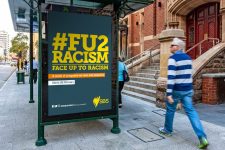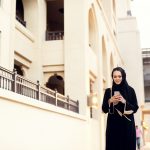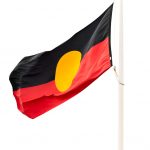Say FU2 Racism – Attitudes Towards Race in Australia

Today marks the start of ‘Face Up to Racism week’, which seems like the perfect time to look at our attitudes towards race in Australia.
Since the end of the Second World War in 1945, Australia has welcomed more than 7 million immigrants. Collectively, we come from more than 300 different ancestries. The 2016 Census shows that significant numbers of migrants come from the UK, New Zealand, The Philippines, Malaysia, India, Vietnam, Italy, South Africa, Malaysia and Germany. And then there are asylum seekers who’ve fled from dire circumstances and found their way here.
Australia has one of the highest percentages of migrants in the developed world. Against this back drop, you’d think we’d be getting along– regardless of race, colour, creed, and culture. But the latest statistics tell a different, somewhat more disappointing story.
Attitudes towards racism
A recent survey conducted by Professor Kevin Dunn from Western Sydney University – billed as the largest undertaken in Australia’s history – suggests that one in five Australians has experienced some form of racism in the past twelve months.
However, the same survey found that 4 out of 5 Australians actually support multiculturalism and believe ethnic diversity has contributed in a positive way to our country.
So what’s the real picture? Well the research also suggests that racism is primarily directed towards two groups: Africans and Muslims.
The study found that anti-African sentiment is particularly strong, with 43% of respondents saying they believe African refugees have contributed to the rise in crime in Australia.
The rise of Islamophobia
Another alarming trend is the rise of Islamophobia, which has been linked to the events of 911. Historical data suggests that in 1998, only 3% of Australians felt animosity towards Muslims. At that time, 45% of Australians were more concerned about ‘Asian’ immigration.
Fast forward to 2017, and ‘Asian’ immigration barely rates a mention, but more than one-third of Australians say they have negative views of Muslims.
And woman appear to be the biggest targets – with 77% of Muslim women experiencing racism on a regular basis.
In a social experiment conducted for an SBS documentary, a Muslim woman dressed in a niqab – the full headdress with only her eyes exposed, walked alone into a shopping centre while being filmed by a hidden camera. A man confronts her in front of several bystanders and launches into an angry, hateful tirade asking why she wears “things like that,” referring to her niqab.
When the woman asks how she should dress, the man becomes enraged and lets loose with a barrage of abuse.
“Well, why don’t you dress like other Australians. They dress with a f****** face!
Where’s your f***ing face? What are you hiding from, f****ing Allah?”
Sadly, as the survey concludes, racism is a normal occurrence for Muslims in Australia today. Almost one-third of the Muslim women who were surveyed reported being the target of bigotry within their workplace, while 35 per cent experienced it on public transport or on the street. Almost a third reported experiencing racism within an educational facility.
There are many reasons people express racism– the most obvious is that they are ignorant and want someone to blame for their own perceived woes.
But Journalist Joe Hildebrand, the man behind the eye-opening ABC TV series Dumb Drunk and Racist explores a different theory – that Australians have always had a tendency to be wary of other cultures – such as the Italians, Greeks in the first wave of immigration as well as the influx of Asians in the 1990s – until these people become such a part of our daily existence that we are less fearful of their differences and our attitude becomes one that is tolerant, if not embracing.
Indigenous Australians
But the question also needs to be asked about our discriminatory attitudes towards Indigenous Australians, which some experts believe is more about neglect than racism.
In a survey conducted by the non-profit mental health organisation Beyond Blue in 2015, about 20% of non-Indigenous Australians aged 25-44 which were surveyed still think “it’s OK to discriminate” against Indigenous Australians.
While this finding indicates there is room for improvement, it also suggests that 80% of those surveyed think it’s not OK – or neither agreed nor disagreed that it was OK – to discriminate against Indigenous Australians.
Not all doom and gloom
A survey by the University of Western Sydney found that 77 per cent of Australians believe that racism is an issue we need to address, and 76% percent said they would stand up for someone who was being discriminated against because of their culture, ethnicity or religion.
This suggests that while there is certainly a level of prejudice in Australia, not all people find racism acceptable and many believe they defend those who are targeted.







